Are you looking to invest more in social media marketing to grow your business this year? Not sure if social selling will work for you?
Social selling can be as effective as email marketing or social media marketing if used correctly. Here are some social media statistics to put things in perspective:
- 87% of buyers think that social media helps them make shopping decisions.
- 43% of customers learn about new products through social media networks.
- 66% of customers buy after seeing other people’s social media posts.
- 71% of people are more likely to buy something based on social media referrals.
- A successful social selling program leads to increased pipeline, better win rates, and up to 48% larger deals.
If you’re considering adopting social selling for your business growth, you’re on the right track. In this article, we share a ton of social selling statistics that will help you understand how effective social selling is. We’ll also share relevant stats on why you need a social selling strategy, how social selling is different from social media marketing, and stats about social media marketing.
- What is Social Selling?
- Why Do You Need Social Selling?
- General Social Selling Statistics
- Statistics: How Top Sales Reps Use Social Selling
- Statistics: How Customers Respond to Social Selling
- B2B Social Selling Statistics
What Is Social Selling?
Social selling is a digital marketing approach that businesses use to engage with potential customers, build relationships with them, and encourage them to buy.
Selling on social media is not just limited to paid ads or unsolicited DMs. Most successful brands on social media don’t always go in for the sale right away. Instead, they start by nurturing prospects and building relationships.
You can use social selling as a replacement for cold calls, email marketing, or SMS marketing when they fail to work. Or, you can use social selling as part of your integrated marketing strategy to maximize your marketing ROI.
Note that social selling is not social commerce. Social commerce takes place when customers buy from within a social media platform. Social commerce is an extension of eCommerce, one that occurs in the social media realm.
If you see an ad for CRM software while browsing Instagram or LinkedIn and buy it, that’s an example of social commerce.
With social selling, the differentiator is in building relationships instead of closing deals right away. The sale takes place outside of the social network.
What about social selling and social media marketing? Are they the same thing?
Certainly not. Social media marketing is a subset of social media strategy that uses social media platforms to market a new business.
This could be anything from creating branded videos on TikTok, using Facebook Ads, or creating sponsored posts on LinkedIn.
But social selling and social media marketing go hand in hand in converting prospects into customers.
Let’s look at some important social media selling statistics to learn what social media can do for your business.
- 73% of marketers say that their social media marketing efforts are ‘somewhat effective’ or ‘very effective’ for their business.
- Social media marketing has a 100% higher lead-to-close rate than outbound marketing.
- 66% of marketers who spend an average of 6 hours on social media every week get more leads.
- 60% of business-to-consumer (B2C) brands get their customers through social media.
- In 2023, brands spend close to $270 billion on social media advertising.
- In the third quarter of 2023, YouTube’s global ad revenue reached $7.95 billion.
- Meta made $121.9 billion, LinkedIn made $4 billion, and X made $2.5 billion in ad revenues in 2023.
- Instagram Shops is the most popular social media feature, used by 22% of social media marketers.
- Facebook Shops is a close second, used by 21% of social media marketers.
Social media marketing is effective, especially when you use it alongside social selling. If you aren’t using social selling yet, you need to get on board.
The good news is that your brand might already be doing social selling. If you are using your company’s Facebook, X (formerly Twitter), Instagram, or LinkedIn pages to engage with potential buyers, you are essentially doing social selling.
Why Do You Need to Know Social Selling?
The role of social media in business is growing by the day. The following stats highlight social media’s burgeoning influence:
- Of the 5.3 billion internet users worldwide, 61.4% are active users of social media.
- According to Statista, over 4.95 billion people use social media worldwide.
- The number of social media users is projected to increase to 6 billion by 2027.
- In 2024, the social media advertising market is expected to reach $219.8 billion.
- A HubSpot research found that 61% of brands engaged in social selling see revenue growth.
- Social media ranks 3rd among the most effective sales channels.
Your business will be at a huge loss if you can’t tap into such a powerful distribution network with hundreds of millions of potential buyers.
And the best part? Social selling works like a charm, and not just for big businesses.
So how effective is social selling really? Let’s take a look.
General Social Selling Statistics
From entry-level executives to C-level suite, and millennials to Gen Z, social selling works on all kinds of buyers.
- Social selling provides 45% more opportunities than traditional sales channels.
- More than 76% of buyers are willing to talk to salespeople over social media.
- Social selling influences over 50% of the revenue for major industries like computer and network security, software, and healthcare.
- U.S. social shoppers grew to 107 million from 97 million between 2021 and 2023.
- 84% of decision-makers like CEOs and VPs use social media in their buying process.
- 90% of marketers say social media marketing has increased their business’ exposure.
- 89% of B2B marketers use LinkedIn to generate leads.
- According to Snapchat, 92% of customers are willing to buy from brands on social media instead of an online marketplace.
Statistics: How Top Sales Reps Use Social Selling
The best sales teams use social selling to generate inbound leads, build deeper relationships with prospects, and speed up the sales process.
Findings from social selling research show how top-performing reps leverage social media in their sales strategy.
- 75% of sales reps use Facebook to find leads, followed by Instagram, Linkedin, and YouTube.
- 33% of sales professionals say that social media offers the highest quality leads.
- 78% of salespeople who use social selling outperform peers who don’t use social media.
- Social sellers create 45% more sales opportunities than reps with a lower social selling index (SSI).
- They are 51% more likely to meet their sales quotas than non-social sellers.
- 12% of the top-performing sales reps use social media when selling.
- 18% of salespeople consider social selling one of their top 5 focus areas.
But what about the buyers? How do they respond to social selling? Let’s go over some recent studies.
Statistics: How Customers Respond to Social Selling
-
- 40% of people say they’ve purchased a product online after seeing it used by a social media influencer.
- Social media influencers on X generate over 5.2 times higher purchase intent.
- That’s because 49% of X users listen to influencers’ recommendations.
- 90% of people shop from brands they follow on social media.
- 72% of customers trust a business more if a social media influencer recommends it.
- 71% of buyers who have had a positive social media experience with a brand recommend it to their friends and family.
- Customers report spending 20%–40% more money on brands that have interacted with them on social media.
- 49% of buyers rely on product recommendations from influencers to make purchases.
- 93% of consumers trust personal recommendations the most, a lot of which comes through social media.
Next, let’s look at social selling stats related to the business-to-business (B2B) industry.
B2B Social Selling Statistics
Generally, we assume that the B2B buyers are buttoned-up and not so social media-savvy. But these B2B social selling statistics tell a different story.
- 40% of B2B buyers use social media for research before making purchasing decisions.
- 54% of B2B marketers generate leads from social media.
- 39% of B2B companies say that they have seen revenue generated from social media.
- 31% of the B2B professionals believe they have built stronger relationships with clients through social selling.
- 75% of B2B buyers use social media to make buying decisions.
- 50% of B2B buyers use LinkedIn as a trusted source to make a purchase decision.
- 31% of B2B prospects say that social media content resonates most out of all other sales enablement content.
- 92% of B2B buyers engage with a salesperson who is a well-known industry thought leader.
- 60% of B2B marketers think social media is the second most effective lead generation strategy.
- 90% of decision-makers never answer a cold call. But 75% of B2B buyers use social media to make purchasing decisions.
- 39% of B2B professionals claimed social selling reduced the length of time they spent researching potential leads.
If you operate in the B2B domain, LinkedIn is among the best social selling tools. It’s the #1 social media network for business professionals with 1 billion members across 200 countries. Out of the 1 billion, 16.2% of LinkedIn users are active daily.
LinkedIn has useful social selling tools like Sales Navigator and Sales Insights that help your sales and marketing teams run an effective social selling strategy.
Want a real-life example of how big social selling is for B2B brands? Read this case study from Tribal Impact.
The UK-based B2B social selling and employee branding agency helped Commvault achieve 61% more pipeline and 52% more opportunities through a social selling program.
Invest in Social Selling to Grow Your Business
Now that you have all the social selling statistics, you can allocate a marketing budget this year to invest in improving your social media presence.
Once you’re all set up, devise a social selling strategy. If you are already running other marketing campaigns like webinars or influencer marketing, make sure you build overlaps between them to offer a consistent brand experience.
If you want more resources to help you with social selling, check out these articles:
- 8 Social Media Feed Tools to Boost Followers
- Best Time To Post on Social Media for the Highest Engagement
- 11 Social Media Metrics You Need to Nail Your Marketing Goals
- 20 Top Social Media Platforms for Explosive Brand Growth
- Social Proof Statistics: Powerful Facts That Will Help You Boost Your Brand
Want to add a ‘Like Us on Facebook’ popup on your blog pages to grow your followers?
Sign up with OptinMonster to create your own custom popup in a matter of minutes!

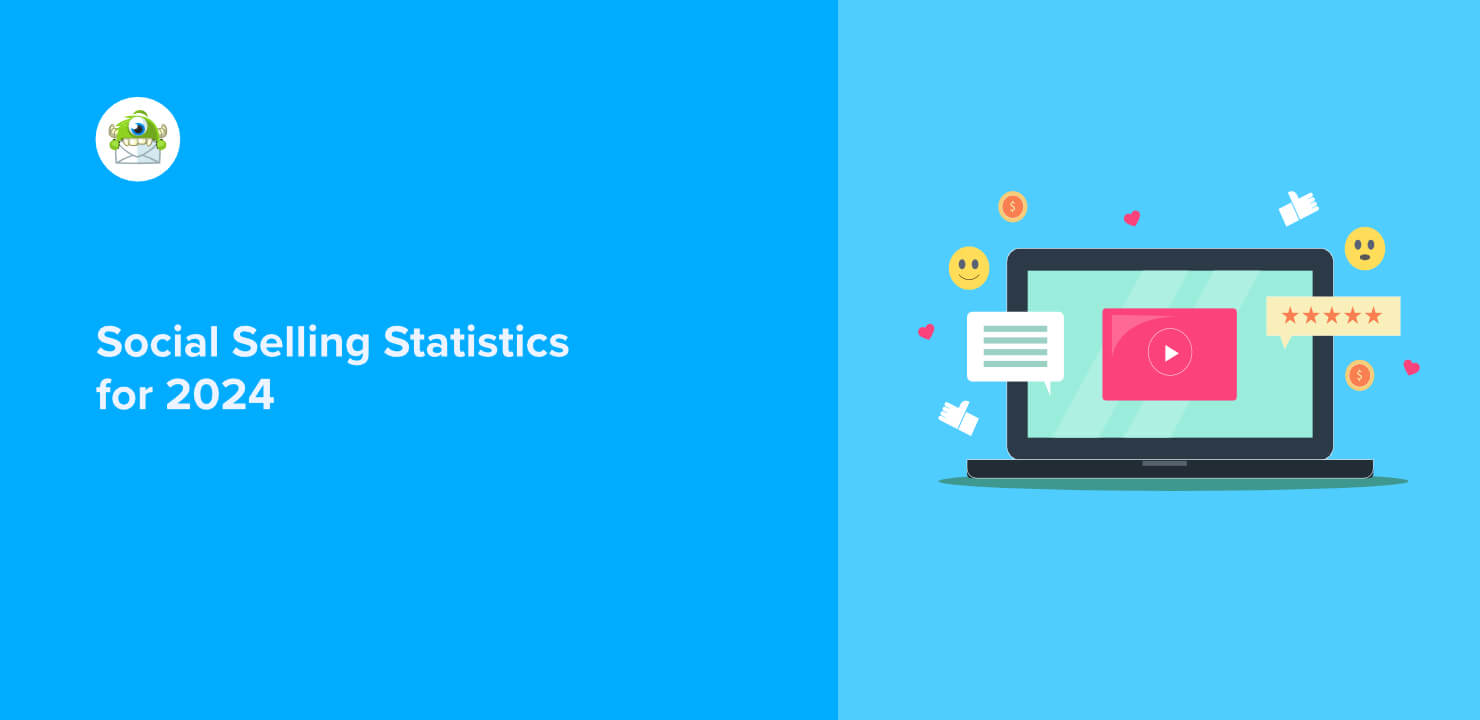
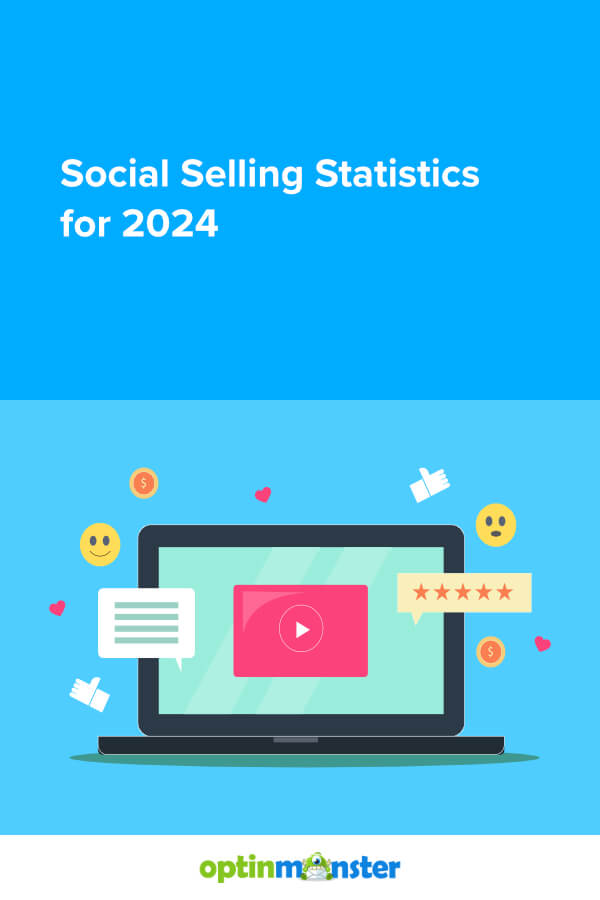
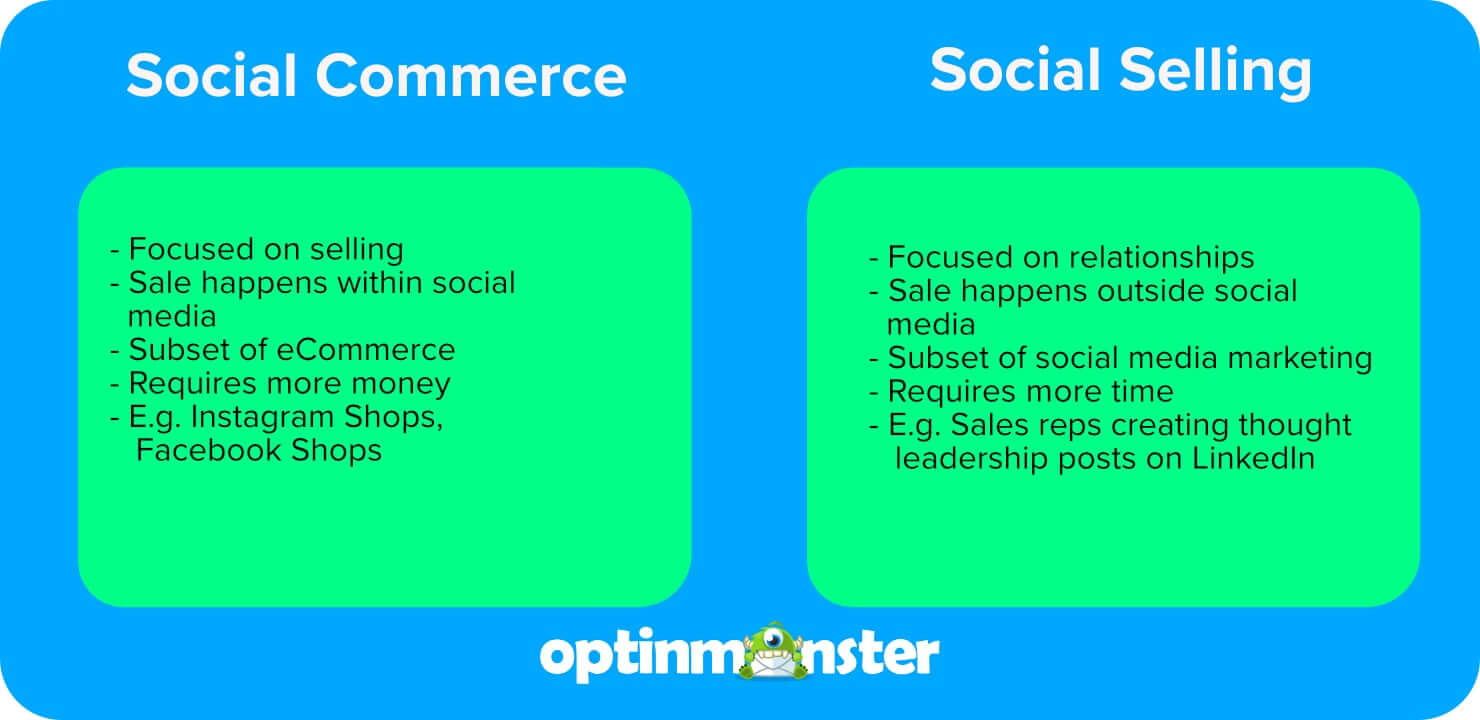
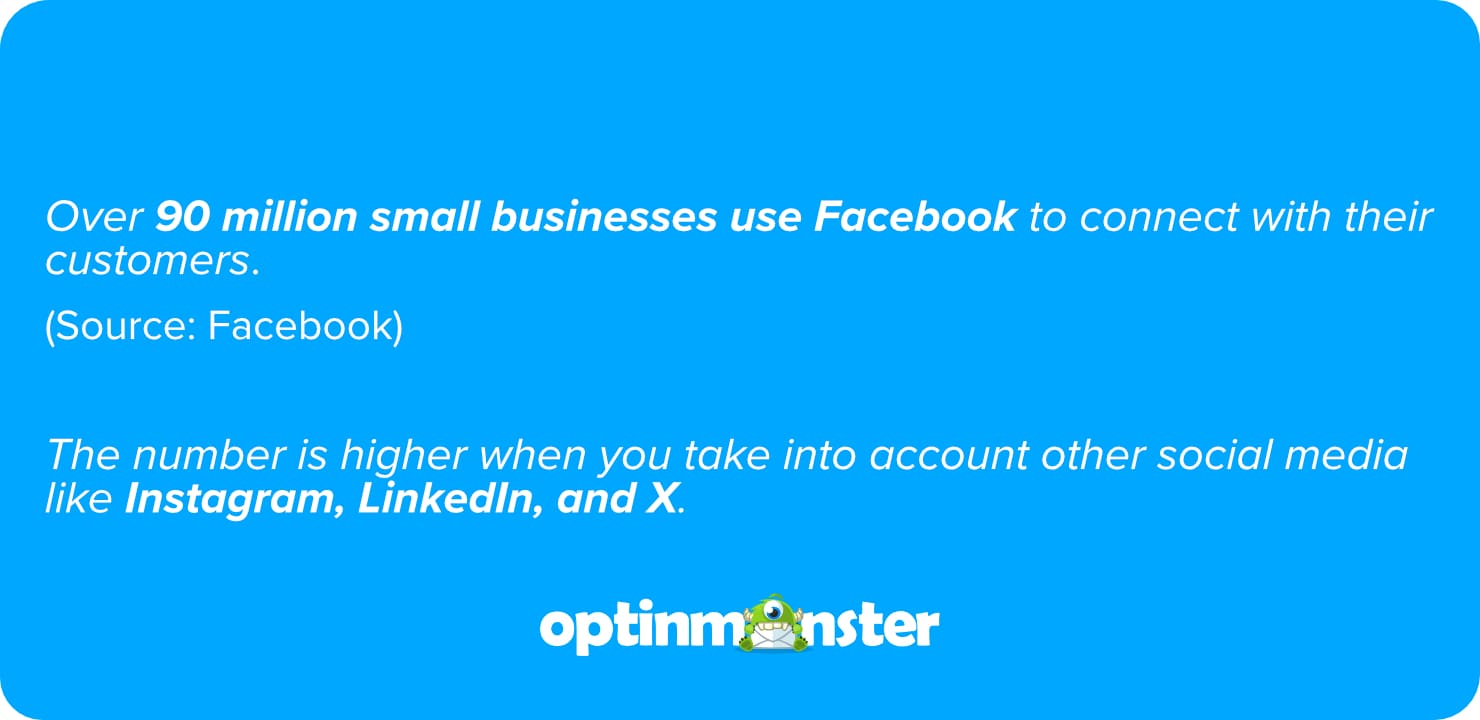

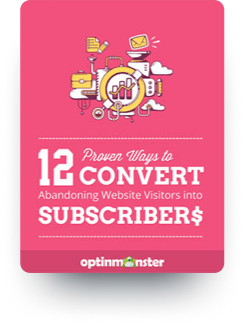






Add a Comment